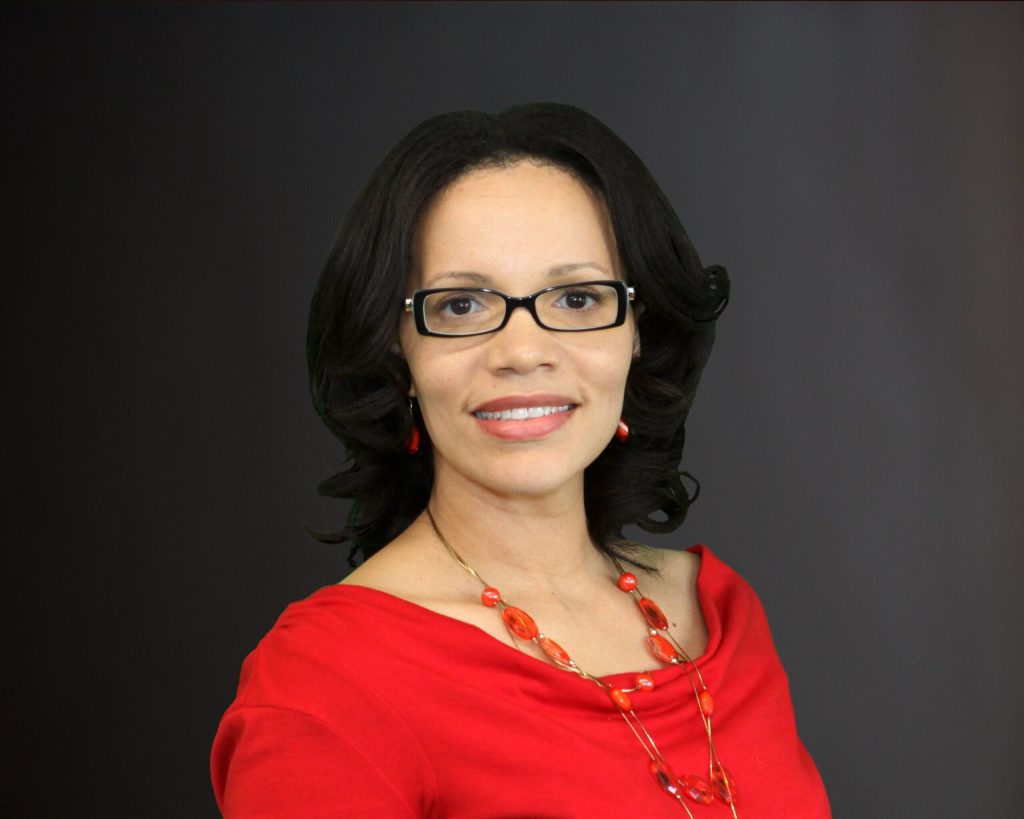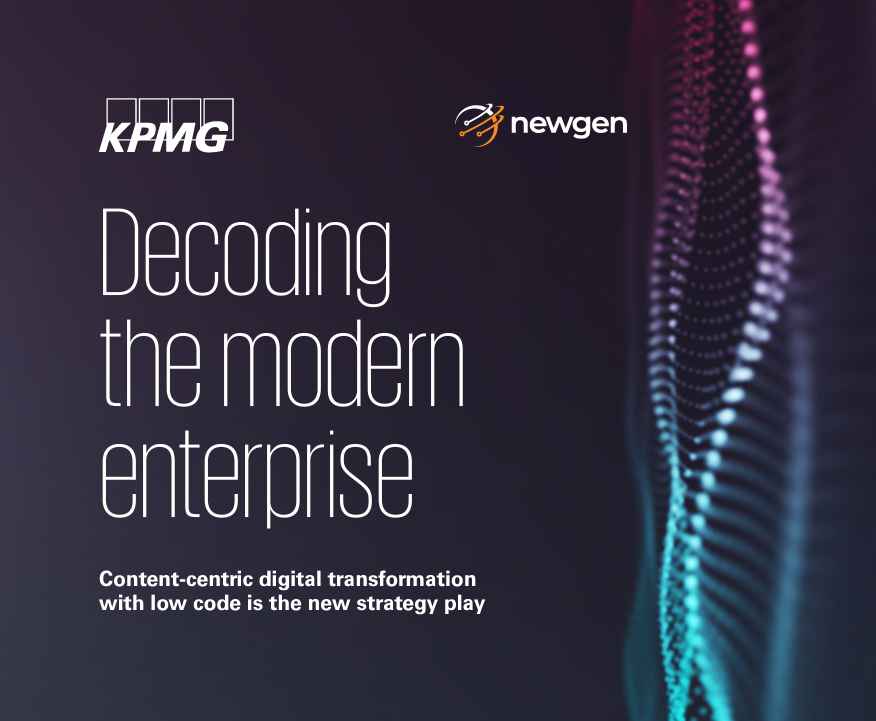At a time when remote work has given companies the freedom to set up and hire from anywhere, Verizon remains firmly committed to being an integral part of the Boston tech ecosystem, from its newly opened office tower Hub on Causeway and the Verizon Innovation Center to the numerous investments they have made in local small businesses, nonprofits, and community organizations throughout the state.
As part of the research for the latest MassTLC State of the Tech Economy Report, we spoke with Nia Mathis, Verizon’s Vice President of State & Local Government Affairs for the Central and New England Region, to find out “Why Massachusetts? Why now?”
Our conversation ranged from Verizon’s investments in the state to deep insights into their approach to DE&I and beyond. Mathis has made one thing clear: Verizon is deeply committed to Massachusetts, but more importantly, deeply committed to its people, its customers, and leading by example when it comes to social justice.
Read on for the full conversation.
___
What makes Massachusetts an attractive place for Verizon to be? What investments has Verizon made in the state and why?
As a network communications company, we invest more than $700 million a year in plant and equipment statewide to ensure that residents and businesses across the state remain connected. We have over 5,000 employees who live and work in the state of Massachusetts. We pay over a billion dollars annually to vendors and suppliers in the state, and we were recognized as a top charitable contributor by the Boston Business Journal based on our annual $4.3 million in charitable contribution state-wide.
Last year, Verizon opened a state-of-the-art Hub on Causeway Street. It’s a new office tower in Boston, which is home to our “Verizon Innovation Center,” and a brand-new Verizon work tech group focused on developing corporate real estate solutions through technology. Verizon has pledged to provide 1 million small businesses with resources to help them thrive in the digital economy by 2030. We also launched Verizon’s Small Business Digital Ready. It’s a complimentary platform, offering small businesses personalized learning on finance, marketing, and HR, along with coaching from experts and peers.

Verizon has chosen Massachusetts for these investments due to the region’s track record for innovation. Boston’s many firsts include the first public school, the oldest institution of higher education in the United States, the nation’s first public park, the nation’s first large public library, and – a favorite that we at Verizon like to celebrate – the invention of the telephone by Alexander Graham Bell in 1876. Massachusetts has stayed at the forefront of innovation due to its many institutions of higher education, which total 144 statewide with 44 of those in the greater Boston area. These higher education institutions fuel the state’s diverse economy, which competes on a global level in the areas of IT, biotech, finance, medicine, and entrepreneurship. The bottom line is that Massachusetts is known as a hub for innovation, and Verizon wants to play an active role in driving forward this thriving tech sector.
Even with the ability to hire in any place, there’s still a high value in having those institutions here physically. Incidental connections that can lead to great things, great innovations, can get lost when you don’t have people working together. How do you manage that in a hybrid world?
While Verizon’s office-based employees have been very effective in continuing to deliver for the company in a working-from-home format, our return to office is centered around finding and creating those moments that matter. There is tremendous value in bringing people together to strengthen the fabric that binds us as employees. The Hub on Causeway is a physical location where we encourage our employees to celebrate the time we spend together collaborating and innovating, even as we move forward in a hybrid format, where some work is better done from home.
It’s about capturing the best of both worlds. What’s the best that we can retain from the work from home model? What’s the best that we can capture from being together and being in person? And how do we combine those for the go-forward hybrid model?

How has Verizon weathered the last few years? Have you witnessed any seismic or systemic changes within your workplace?
We’ve dealt with a lot these past two years. In terms of the pandemic response, I’m so proud when I look back at the work that Verizon did to put employees first. We were ranked number one on the Forbes COVID-19 corporate response tracker, which assesses how the 100 largest U.S. employers addressed their stakeholder’s needs. That ranking noted our generous COVID-19-specific leave of absence policy. We offered expanded backup child or elder care reimbursement, and we made contributions to nonprofits supporting the needs of those who are most affected by the pandemic.
That honor also considered the fact that we did not lay off employees. Instead, we paid them during the closure period, and we provided opportunities for employees who were in closed retail locations to retrain for new call center and telesales roles. I’m also proud of my company for recognizing how the pandemic impacted small business. We provided $17.5 million in grants to small businesses across the country, and 86 of those businesses in Massachusetts received nearly $900,000 in grants to bridge the financial gaps that were created by the pandemic.
Also, when we consider the social justice awakening in our country, in the wake of George Floyd’s murder, Verizon donated $10 million in grants to social justice organizations. In response to violence against our Asian American Pacific Islander community, Verizon donated an additional $10 million in grants and advertising inventory to support fellow members of that community. Verizon was also an early supporter of the MassTLC Tech Compact for Social Justice.
When it comes to DE&I, what are some of the challenges that you’ve seen in terms of companies making their workforces more diverse, welcoming, and inclusive places? How do we get more people off the sidelines?
The all-important starting point, and it’s absolutely the starting point at Verizon, is that you have to know and believe that diversity makes you stronger. When you have that foundational belief, you make decisions that flow from there. It’s not because the spotlight is shone on the issue. It’s because you know that diversity makes you stronger. That’s why at Verizon, we have a proud track record of 60% employee diversity in our workforce. Thirty-one percent of our senior managers in the U.S. are people of color. In 2020, we had 100% pay equity in salary for women and men across all of Verizon, and in the U.S., we also had 100% pay equity in salary with respect to race and ethnicity, as outlined in our Human Capital Report.
“The all-important starting point, and it’s absolutely the starting point at Verizon, is that you have to know and believe that diversity makes you stronger. When you have that foundational belief, you make decisions that flow from there.”
We are committed to a collaborative, inclusive environment that encourages authenticity and fosters a sense of being, and we strive for everyone to feel valued and connected. We think about what that looks like in terms of encouraging authenticity and fostering a sense of belonging. Verizon continues to create spaces and places for the dialogue to occur, and it’s not always comfortable or fun. For me as a Black woman, in this company and in this country, in order to create this authentic environment and dialogue, I have to be willing to open up parts of myself that sometimes I’d rather leave closed in a public setting. But that’s what it takes. To encourage authenticity and inclusivity, you have to create an environment where people from every walk of life are comfortable opening up a little bit more of their story. It’s the stories that bind us, it’s the stories that connect us.
Verizon is committed to providing those opportunities. We know that there’s a natural synergy between diversity, equity, and inclusion, and our company’s talent strategy in terms of how we develop, recruit, and retain the most talented employees. Verizon recently released its first-ever Human Capital Report that outlines our commitment to attracting the best talent, to developing our employees to their full potential, and inspiring employees to build their careers at Verizon.
That report focused on how we are building on past successes to upskill employees so that they can continue to lead and provides a blueprint for how we keep our more than 133,000 employees around the world engaged in an increasingly competitive labor market. We stay committed to being the employer of choice through the programs that we offer, through upskilling and talent development with a specific focus on employees of color, women employees, and international employees. Then we focus on all of our employees together.
We are currently in the top quartile of Gallup’s Q12 database that tracks employee engagement as a key performance indicator, and our sights are set on reaching the top 10% by 2024. Verizon also partners with historically Black colleges and universities to recruit candidates for internships and full-time roles, and we employ numerous alumni in executive positions. The key is, again, you have to know and believe in your core that diversity makes you stronger. We center our actions and beliefs as a Verizon corporate body around our credo, which highlights integrity, accountability, and respect for one another. When you have that as a grounding, you’re able to put all the building blocks in place to make sure that each employee can come to the table, be encouraged to be their authentic self, and know that they’re in an environment where they are truly appreciated, recognized and, encouraged to stay at Verizon and grow to be the best they can be.
You referenced a tight labor market. Does Verizon hire outside of the traditional four-year college degree?
That is something that we’ve looked at more recently. We have senior executives at our company who’ve risen the ranks and earned their college degree later. The lack of a college degree is not a bar to succeeding in your career at Verizon. We’re such a large company and you can come into the company in many different areas. In highly technical areas, you would be expected to have the necessary background, experience or understanding. But there are also roles that don’t require a four-year degree. I have seen people start in roles that didn’t require a college degree, and they’ve taken a demonstrated skill set – whether sales acumen or a strong ability to support customers – and used that to navigate into different roles across the company. At the end of the day, Verizon is a customer-centric company, and if you come in with that ability to really understand and meet the customer’s needs, there are a million different ways that you can navigate and change lanes within the company to move your career forward.
At MassTLC, many of our members are seeing a really fascinating transition in their employee resource groups (ERGs). Prior to 2020, many of these groups were more social groups than anything. Now, they’ve become key strategic parts of companies. What is the ERG culture like as Verizon and have you seen any kind of change over the last couple of years?
We have ERGs focusing on a variety of our employee stakeholder groups, whether it’s Black employees, the Asian American community, veterans, employees with disabilities, women employees, across the board. If I go back 10 years, it was probably the case that those ERGs were more like social clubs, but over the last several years, we’ve certainly ushered in an era where these ERGs are central highlights of the Verizon employee experience. You don’t go a few weeks in the company without seeing the contributions of, or opportunities to learn from, employees that are part of our ERGs.

We link so closely with our ERGs, because as we look to make meaningful contributions to our local communities, we can learn from our ERG employees who are actively engaged in those local communities.
Through our ERGs, we are actively celebrating our diversity, celebrating our differences, and at the end of the day, we learn that we have so much more to celebrate in terms of our commonality.
Another great facet of our program is that each ERG has an executive sponsor that is not a natural member of that group. For example, for our women’s ERG, we have a male sponsor. The sponsoring executives publicly champion the work that is being done within the ERG. I love that we build those bridges of connection and humanity by learning about what makes us different. And in that process, we learn so much about what makes us the same.
The community is talking a lot about digital equity. What work is Verizon doing in this space and what challenges are you encountering?
As a broadband provider, we certainly recognize the importance of digital equity. Verizon is committed to ensuring all Americans have access to affordable broadband, and that all Americans are equipped with the skills to use it. We want to make sure that everyone has the opportunity to participate in the digital economy.
Verizon has joined an effort called Broadband Equity for All, and we’ve added our voice to the request that lawmakers pass a predictable, dependable, long-term broadband benefit program. In May the White House had event announcing that 20 leading internet providers, including Verizon, have committed to offer Affordable Connectivity Program (ACP)-eligible households with high-speed, high-quality internet plans at no cost. These commitments will allow tens of millions of eligible households to receive high-speed internet for free. Verizon is proud of our work to help more families connect to the internet. In fact, last March we announced Fios Forward, a broadband offering for ACP-eligible households that delivers uncapped download and upload speeds of at least 200 megabits at no cost after application of the ACP subsidy. That means ACP participants who subscribe to Fios can get free broadband, with no additional fees or hidden charges. Even though broadband prices have gone down over the past five years, the ACP subsidy is a vital resource to help vulnerable households connect to the internet.
What is the most helpful piece of advice you’ve had regarding leadership that you continue to reflect back on?
When I think about leadership, it starts with self and the inner voice. It’s about having the confidence to step out on a national stage and know that there will be all sorts of opinions and thoughts about you. But as a leader, I have to cut through the clutter and focus on what I know to be true about myself. There’s so much that gets layered into what we face as women and as people of color, but at the end of the day, we have to be able to set that aside and focus in on what is true: you are qualified and capable of contributing tremendous value to the business. That’s how I think of leadership in the most personal sense.
___




